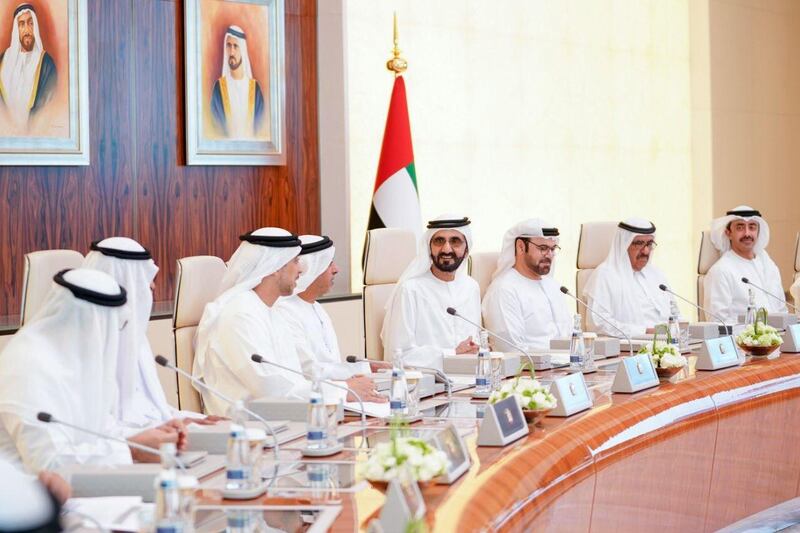A nation’s true wealth, Sheikh Zayed once said, does not lie in its currency. It exists in the human spirit and the will to direct intellect, capability and resources in “the service of the nation”. To that effect, more than one third of the UAE’s Dh61.35 billion federal budget passed for 2020 – the largest ever approved in the history of the country – will be dedicated to social development and enterprises that aim to enhance and improve life in the UAE for Emiratis and residents alike.
The UAE has a history of thinking big in its mission to reach the upper echelons of global rankings of the world’s most developed nations. Since its foundation in 1971, it has thrived on the understanding that buildings and infrastructure are only one aspect of creating a great nation. They must go hand-in-hand with investing in human capital.
At Tuesday’s UAE cabinet meeting, therefore, Sheikh Mohammed bin Rashid, Vice President and Ruler of Dubai, promised 2020 would herald the start of a “new decade of rapid development”. He was alluding to a host of new initiatives, which are already bearing fruit. Next year, Dubai will become the first city in the Middle East to host World Expo, on a site that is already taking shape. Meanwhile in Abu Dhabi, Ghadan 21, a package of reforms to diversify from an oil-based economy, is transforming life in the capital for investors, entrepreneurs and long-staying residents alike.
The zero-deficit budget will see about 14 per cent of funds dedicated equally to infrastructure and education while Dh26.7 billion – equivalent to 38 per cent of the total budget – will go to social developments and benefits, including pensions for senior citizens and military veterans. Another Dh4.9bn will go towards health care and disease prevention.
What is remarkable about the allocation of federal funds is that while other countries across the world are becoming increasingly inward-looking or implementing austerity measures, from Ecuador to Jordan, the UAE continues to dream big, on a broad canvas, with long-term goals that might be difficult to envisage now but will chart an inclusive course for all, for decades to come. In a region that is riven with conflict, and where, in some cases such as Iraq and Lebanon, citizens do not even know what tomorrow might bring, the UAE is looking as far ahead as its centenary celebrations in 2071 in its bid to champion growth, nurture its residents’ needs and create a haven of safety and stability. The investment and steps announced this week enshrine the nation’s intent to remain a socially cohesive environment that helps people realise their full potential.
This builds on the country’s track record of consistently delivering on promises to enhance the lives of residents and provide them with a better life. In just 45 years, the UAE has already made unparalleled strides in development. That goes back to the vision fostered by Sheikh Zayed, the Founding Father, who prioritised investment in citizens. There is perhaps no better exemplification of this than the recent triumphant return from space of the UAE’s first astronaut, Hazza Al Mansouri. It is fitting that he was invited to sit alongside ministers at the cabinet meeting, alongside his fellow astronaut Sultan Al Neyadi, to share his experiences. There can be no better embodiment of a future vision than the explorer who took the first step into uncharted territory. Many more will undoubtedly follow in his footsteps as the UAE continues on the space exploration journey he has begun. Just as Maj Al Mansouri headed into the unknown, equipped with the tools his country had given him, the UAE’s residents are being prepared for all the challenges the future might hold.





